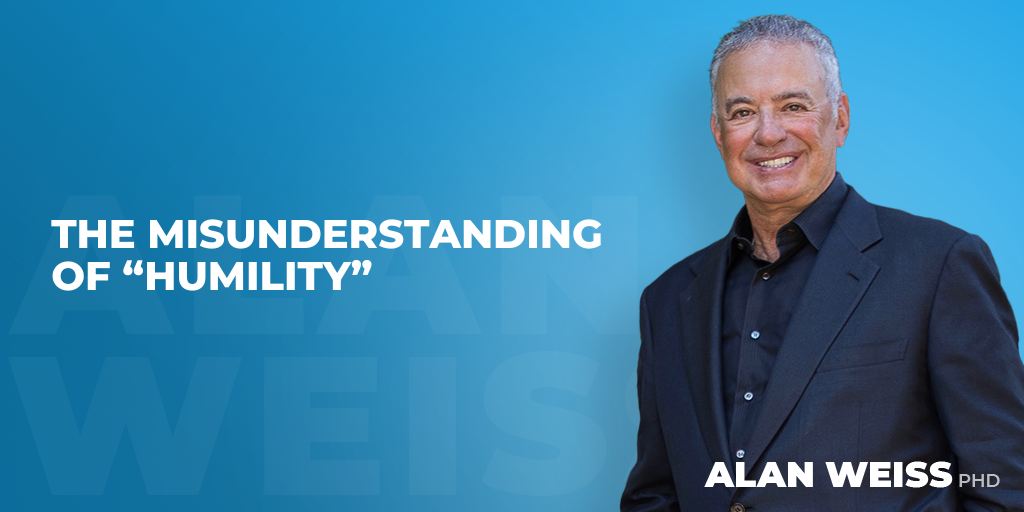Your Legacy is Now
Life is not a search for meaning from others, it’s about the creation of meaning for yourself.
For over 30 years Alan Weiss has consulted, coached, and advised everyone from Fortune 500 executives, state governors, non-profit directors, and entrepreneurs to athletes, entertainers, and beauty pageant contestants. That’s quite an assortment of people, and they run into the thousands. Most of them have had what we euphemistically call “means,” and some of them have had a lot more than that. Others have been aspiring and with more ends in sight than means on hand.
Alan Weiss states:
I’ve dealt with esteem (low), narcissism (high), family problems, leadership dysfunctions, insecurities, addictions, and ethical quandaries. And I’ve talked about them through the coronavirus crisis. But don’t get the wrong idea. About 95% of these people have been well-meaning, honest (to the best of their knowledge), and interested in becoming a better person and better professional. Otherwise, they wouldn’t be talking to me.
I found the equivalent of the “runner’s wall” in their journeys, where they must break through the pain and the obstacles and then can keep going with renewed energy and spirit. But runners know how far they must go after the breakthrough, be it another half lap or another five miles. There is a finish line.
I’ve found that people in all positions, even after the “breakthrough,” don’t know where they are in the race, let alone where the finish line is.
They do not know what meaning is for them. They may have money in the bank, good relationships, the admiration of others, and the love of their dogs. But they have no metrics for “What now?” They believe that at the end of life there is a tallying, some metaphysical accountant who totals up their contributions, deducts their bad acts, and creates the (hopefully positive) difference.
That difference, they believe, is their “legacy.”
But the thought that legacy arrives at the end of life is as ridiculous as someone who decides to sell a business and tries to increase its valuation the day prior. Legacy is now. Legacy is daily. Every day we create the next page in our lives, but the question becomes who is writing it and what’s being written. Is someone else creating our legacy? Or are we, ourselves, simply writing the same page repeatedly?
Or do we leave it blank?
Our organic, living legacy is marred and squeezed by huge normative pressures. There is a “threshold” point, at which one’s beliefs and values are overridden by immense peer pressure. Our metrics are forced to change.
In an age of social media, biased press, and bullying, we’ve come to a point where our legacy, ironically, is almost out of our hands.
Yet our “meaning”—our creation of meaning and not a search for some illusive alchemy—creates worth and impact for us and all those with whom we interact.




Michael Martin
How hard is this? I have recently purchased three of your books (Getting Started In Consulting; Million Dollar Consulting; Money Talks). I was half way through the first book when I went to my boss and showed him we could do this (consult), within our industry. He said “Go for it.” Over the past two weeks we have acquired our first client ($45,000 in business),and I have started a blog which I will utilize to help market this part of the business; solely based on the advice in these books.
My advice to this gentlemen would be, “Don’t waste (more of) your money if you are not willing to heed the advice.”
Alan, thanks for your valuable wisdom!
Rob Novak
Having not billed an hour since 2000 (and then because the client’s payment system demanded hours, so we decided on the project fee and billed accordingly), I can attest to the wisdom of value-based fees that I learned early and refined greatly through the Ultimate Consultant series. I still struggle with the initial explanation to clients who aren’t used to it, but am getting better at the message in various industries.
In the project-based IT consulting and development industry, there are some risks to value based fees that aren’t apparent in other disciplines. Taking those risks is what makes it all so exciting.
Thanks Alan for continuing to educate on this topic. Maybe someday, I won’t have to explain it so much myself!
Alex Singleton
I’m convinced that half of a percent of people are low-caibre, uncommitted individuals who simply don’t listen, even if their boss has paid for them to attend a seminar.
This is a major reason I gave up issuing smile sheets. I read your criticism of them just after a delegate, who had spent most of the day playing with her cellphone, wrote that I had not spoken on one of the promised topics.
I replied gently pointing out that I had actually dedicated an entire hour of day to speaking about the topic.
Alan Weiss
I ignore all smile sheets because I don’t care about audience feedback, only buyer feedback. I’m often hired to discomfort people, not to help them walk over hot coals and think that’s some kind of achievement.